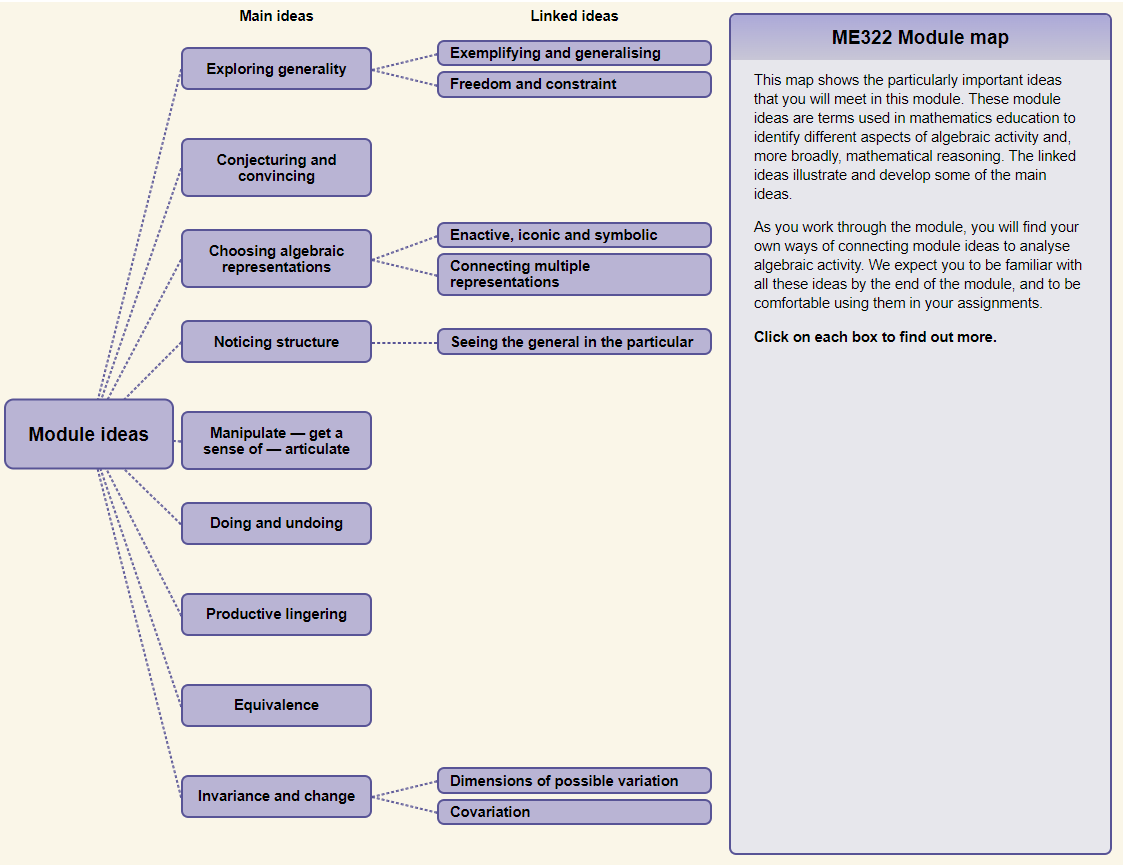The “Learning from Improvers” project was an in-depth study of 12 Open University undergraduate students who were identified as ‘improvers’ on mathematics education modules. These students were interviewed about the difficulties they experienced and supportive strategies they used while learning to write reflectively about mathematical activity as part of their module assessments. The findings from the project have already been incorporated into the production for two new modules, resulting in a new integrated approach to assessment, including new assessment designs, additional teaching about writing, and modelling ways of analytical thinking.
You can read the full report of this project on the eSTEeM website here.
*Note: the names in this blog (and full report) are pseudonyms and not the real names of the student participants.
Why did we carry out this study?
Mathematics Education (ME) modules involve reflective writing, a type of writing which applies academic analysis to personal practice. Writing for ME modules therefore requires a different approach to writing for either straight mathematics or humanities and arts subjects, as it involves combining specific inter-disciplinary elements. Students entering our level 3 modules, many with mathematical rather than education backgrounds, need to develop these ways of thinking and writing to succeed in their assignments. We know from speaking to students and tutors on our modules that students find reflective writing particularly challenging and we have long been interested in learning how to help them to develop and improve this skill.
We reasoned that our support for students in this new approach to writing needed to be strengthened and felt that the most relevant experiences to understand were not necessarily those of the most successful ME students, but those who had improved their marks during a ME module. So we set out to investigate what it was that helped those students to improve.
What did we find out?
Through interviewing our student improvers, we gained some insight into what it is like to be a student on our ME modules. Thematic analysis of the interview transcripts revealed some of the key difficulties faced by these students whilst working through ME modules, and the approaches they found most beneficial in their improvement in written assignments.
Difficulties
Through our analysis we identified three key themes in the difficulties reported by students in our sample:
- difficulty with mathematics
- difficulty with writing
- difficulty with the unfamiliarity of the module and assignments
Support
Four key themes were identified as being supportive to student improvers:
- personalised support
- alternative explanations
- supportive ways of working
- support from module resources.
What does this mean for our students?
We have used the insights gained from interviewing the student improvers to help make changes to our new ME modules to support all students in improving their reflective writing. This has included:
- developing an integrated approach to assignments,
- narrowing the focus of early assignments,
- explicitly teaching about writing,
- modelling reflective ways of thinking.
The major change to module content was integrating assessment activities as part of study. Our two new ME modules (ME321 and ME322) each have a detailed activity planner and time for preparing assignments is built into this. Drawing on the improvers’ emphasis on ‘having two goes’ at assignments, preparation activities for each assignment start 4-6 weeks before deadlines and each question has scheduled time for starting and separate time for finalising. Reading feedback from assignments is also a scheduled activity before each new assignment, again considering the improvers view that reading and re-reading personalised feedback was a supportive way of working.
Improvers had expressed the value of having a summary of module ideas to refer to when planning and writing. The new modules therefore include an interactive ‘Module ideas map’ which allows students to find a short definition of each idea and where it is first mentioned.

Some changes have been made to module assignments to narrow the focus. For example: for the first assignment in ME322 students only write about their own mathematical work, and do not analyse learners’ work until the second assignment. The idea is to build up the level of challenge along the module, allowing time for development of understanding of module ideas and of a reflective voice.
In response to students reported unfamiliarity with writing analytically and reflectively about mathematics, new content has been written for each module, giving explicit advice about writing, including reading about the difference between writing types and structuring paragraphs.
The last findings that directly informed module design were the universal request for sample assignments, the critique of existing videos, and the improvement associated with seeing the value of the process. In addition to written resources about writing reflectively and analytically, other resources have been developed to support students’ writing through modelling ways of thinking. These include videos of school-aged children working on mathematics ‘live’ and interactive forum activities. These allow students to develop their analytic approach by providing examples close to their own experience of working with learners, but with the added value that these experiences can be shared with other students and discussed openly on the forum. These forum activities also allow for students to give peer feedback and to learn from other perspectives than their own, or their tutors. In Learning and Doing Geometry, students are asked to take part in such forum activity as part of their first assignment, increasing the participation in the overall cohort.
For us, the value of the Learning from Improvers project has been in using students’ knowledge to inform and improve future teaching.
